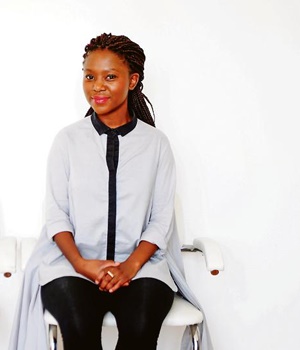
Did you hear about the young white couple who got married in the section of Constitution Hill in Johannesburg that used to be the women’s jail?
I wish it weren’t something I discovered on my Instagram feed. I wish the bride wasn’t someone I had once shared a meal with; somebody I liked from afar. They got married in a prison that can be compared to Robben Island or – and at this point I have to conjure the comparison that black people have to conjure in order for the gravity of such insensitivity to be understood by whiteness – they got married in the equivalent of what Auschwitz was to Polish political prisoners.
What was theoretically the happiest moment of their apolitical love was framed by photographs and placards that carried testimonies of how black women were denied sanitary towels during menstruation, so they bled on to themselves.
If Constitution Hill is a cold, dark place that houses a cold, dark history, it should not to be celebrated with sparkling wine but remembered with sobriety and seriousness. So why did this couple think it was appropriate to have a wedding there? Could they have been inspired by the Pinterest-popularised trend of young white American couples getting married on slave plantations? Or could it be because of this less grandiose fact: there are no consequences for causing black pain.
For even the most well-meaning white liberals who think of themselves as good people, their goodness need not extend beyond their personal happiness. Their happiness need not be disturbed by a little contextualisation, because black pain – even when it glares at them from the inside of a prison – is inconsequential.
It would be easy to vilify the person who signed this off at Constitution Hill, and even easier to vilify that room of smiling white faces, but it would not resolve the context that created the mentality on both sides that this would be a good idea.
For that, we would have to violently crack open our minds to create a different climate, one where the provocation of black pain would have meaning and consequences.
First, it has to be unacceptable. But nothing is ever unacceptable when it comes to black people. You can do whatever you want to black people. You can give them names such as natives, plurals, kaffirs, niggers and newer pejoratives such as black diamonds. You can be artist Anton Kannemeyer and insist on a body of work where black people are depicted as golliwogs and white people as humans because you know you can get away with calling it satire, especially in spaces that accommodate your bigotry – spaces such as art fairs.
You can be the aggressors that the University of Stellenbosch’s black students describe in the documentary Luister (Listen) because you’re not about listening. You can be like the white man who interviewed Khaya Dlanga, Luvuyo Mandela and me during the ill-conceived Digital Edge Live conference headlined by Spike Lee last week. His response to Luvuyo Mandela, when he recited all of his Xhosa clan names during the interview, was: “Dumela ... sharp sharp – that’s all I know what to say.”
You will not feel embarrassed, because it’s no big deal that you call yourself an African, yet you do not speak an African language.
Instead, you will smile and wave because Dali Tambo gave you the right to take pride in your crimes when he introduced “the honourable assassin Dirk Coetzee” in an episode of People of the South one day in 1994.
Nothing is unacceptable, even when it comes to how black people treat each other. Forty-four white bodies would have caused the world to stop spinning had they been mowed down Marikana style. They would have been lionised by millions of petitions.
Because black people’s psychological oppression is yet to be treated, there is no difference between Mmusi Maimane’s attempt to recite Steve Biko’s words, instead of living them, and a powerful black person’s hatred of a powerless blacker person.
Black power has a new meaning in what poet and student activist Mbe Mbele calls post-apartheid apartheid: “That’s who you have power over, your fellow blacks who are also pummeled by and deemed subhuman by our post-apartheid apartheid, so you will exercise your agency and pummel them because there aren’t any consequences.”
Institutions, be they physical or ideological, don’t build themselves – people build them. They can also be destroyed by people, as curator Thembinkosi Goniwe reminded the audience during a talk at last weekend’s FNB Joburg Art Fair.
But for that destruction to begin, the lines that can no longer be crossed must be drawn clean and clear for no feet to miss. First, we have to make black pain unacceptable




 Publications
Publications
 Partners
Partners








